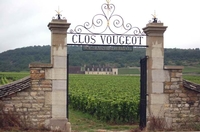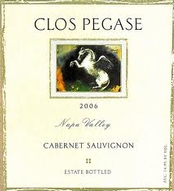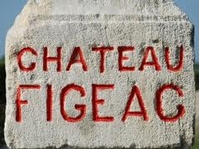Creators Syndicate
When the French have a hissy fit over U.S. wine labels that promise Champagne or Burgundy in the bottle, I get that. The so-called “place names” are the official guarantee that what the label says is actually what’s in the bottle.
 This sacred concept simply means that when a buyer purchases a wine that has the term Champagne on the label, the consumer can rest assured the wine in the bottle was produced in the Champagne region of France, or Burgundy if the label indicates Burgundy.
This sacred concept simply means that when a buyer purchases a wine that has the term Champagne on the label, the consumer can rest assured the wine in the bottle was produced in the Champagne region of France, or Burgundy if the label indicates Burgundy.
Though a handful of U.S. wineries have been grandfathered in and can still market their wines using the French place-names on the label, the practice has been outlawed through trade agreements with the European Union and largely eliminated.
Now comes another dispute over labeling and I am not so sure the French are on equally strong footing. There is a proposal before the EU to lift a ban on the sale of U.S. wines from wineries that have the French terms “chateau” or “clos” in their name. Napa Valley neighbors Clos Pegase and Chateau Montelena quickly come to mind.
 The French oppose the change, arguing that these terms, as understood in the French wine culture, indicate the wine in the bottle is made from grapes either grown on the estate, the chateau, or in a delineated area such as a clos, meaning a specific vineyard, usually one that is walled off.
The French oppose the change, arguing that these terms, as understood in the French wine culture, indicate the wine in the bottle is made from grapes either grown on the estate, the chateau, or in a delineated area such as a clos, meaning a specific vineyard, usually one that is walled off.
Wineries in the United States have no such restrictions on the use of those terms. Clos Pegase and Chateau Montelena may well use estate-grown grapes, but they are also permitted to purchase grapes from private growers and bottle those wines under the existing labels using the terms clos and chateau.
The French argument is silly on a couple of levels. First of all, the terms clos and chateau mean nothing if not attached to a highly regarded producer with a known commitment to quality. What’s important is the producer’s name that follow’s the term. There are good chateau owners and bad. Good clos and bad.
 A chateau is a building, not an estate exclusive to France. If Dr. Konstantin Frank of the Finger Lakes region in upstate New York wants to market a wine under the Chateau Frank label, more power to it. What propels Chateau Frank is the reputation of Dr. Frank and the proven quality in the bottle over many vintages; not the fact that the Frank property has a building it chooses to identify as a chateau.
A chateau is a building, not an estate exclusive to France. If Dr. Konstantin Frank of the Finger Lakes region in upstate New York wants to market a wine under the Chateau Frank label, more power to it. What propels Chateau Frank is the reputation of Dr. Frank and the proven quality in the bottle over many vintages; not the fact that the Frank property has a building it chooses to identify as a chateau.
The EU is scheduled to take up the proposal to lift the ban this week. In the overall scheme of things the economic impact will be negligible no matter how the vote turns out. But in the war over words between French and U.S. vintners, it’s time for a little common sense. Lift the ban.
Email comments to [email protected] and follow Robert on Twitter @wineguru.
8
